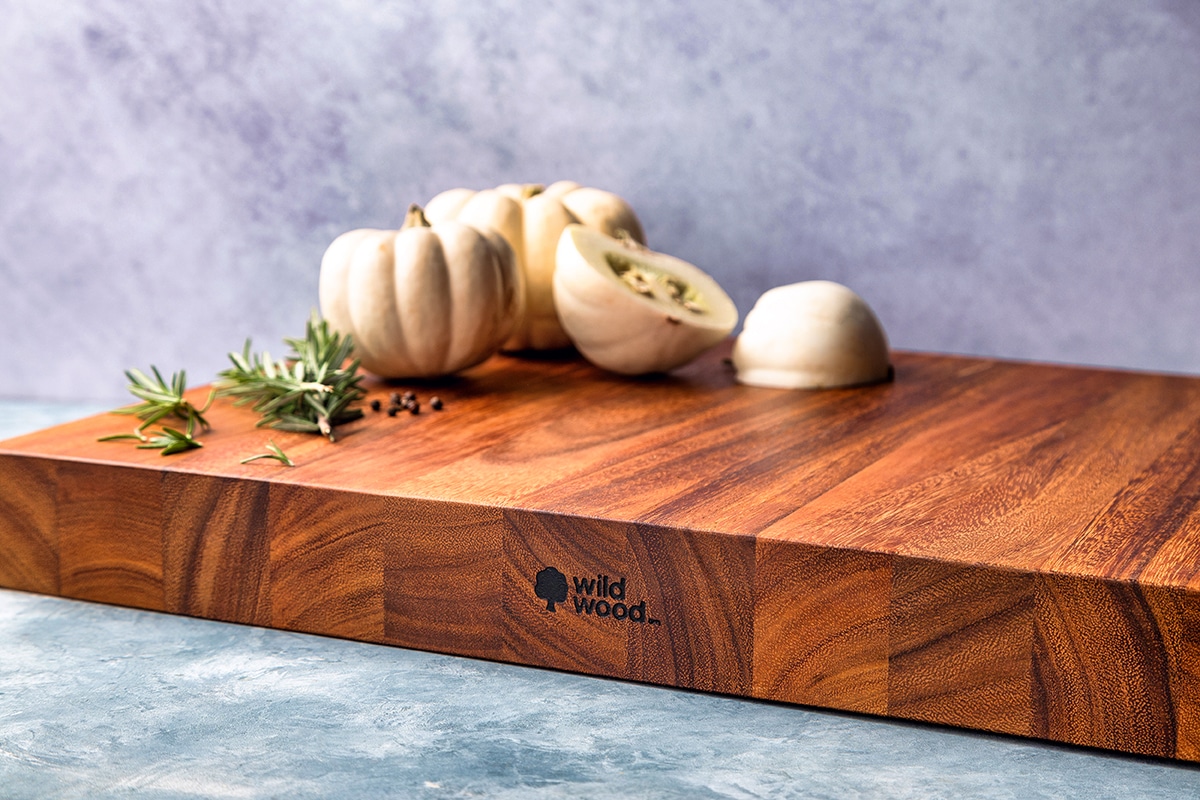In almost every kitchen, you’ll find a chopping board. It’s one of the most-used tools in the home, yet often one of the most overlooked when it comes to quality and care. For years, plastic boards have been seen as the “easy” choice—affordable, lightweight, and simple to clean. But more and more home cooks, chefs, and conscious consumers are choosing to go back to wooden chopping boards, and for good reason.
As a small family business that’s been designing and handcrafting wooden boards for over two decades, we’ve seen firsthand why wooden boards—especially those made from Acacia heartwood—stand the test of time. So, let’s dive into the real reasons why wooden chopping boards are better than plastic, and why thousands of home chefs across Australia are making the switch.
1. Wood Is Kinder to Your Knives
This one’s simple but important. Wooden chopping boards—especially hardwoods like Acacia—are gentler on your knife blades. Unlike plastic, which can be surprisingly abrasive and cause micro damage to your knife edge, wood gives just enough when you chop, meaning your blades stay sharper for longer.
If you’ve invested in a good set of kitchen knives, you want to protect them. A Wild Wood board will not only give you a sturdy surface to prep on but help you avoid constantly reaching for the sharpener.
2. Wood Is More Sanitary Than You Think
This one often surprises people.
Plastic boards are marketed as “hygienic” because they’re non-porous—but studies have shown that once a plastic board is scored by knives, bacteria can settle into those grooves and be incredibly hard to remove, even after washing. Over time, these scratches become breeding grounds for bacteria.
Wood, on the other hand—especially dense hardwoods like Acacia—has natural antimicrobial properties. Bacteria that enter the wood surface don’t survive long. In fact, according to research by the University of Wisconsin, bacteria on wooden cutting boards tend to die off within hours, whereas on plastic, they can persist and multiply.
And here’s the bonus: when a wooden board becomes a little tired or stained? You can sand it down and oil it back to life. Try doing that with plastic.
3. Wooden Boards Are Incredibly Durable
With a bit of care, a good wooden chopping board can last 10, 15, even 20 years or more. Plastic boards, on the other hand, are notorious for warping in hot water, developing deep grooves, or cracking over time.
Our Wild Wood chopping boards are built to be everyday essentials that handle everything from heavy carving to light prep. Many of our customers come back to us a decade later saying, “I’m still using the one I bought from you years ago—it’s even better with age!”
And if you ever feel like your board’s looking a little tired? A light sand and oil will bring it back to life like new.
4. They’re Beautiful—And Belong on Your Bench
We may be a little biased, but there’s just something about a wooden board. The rich grain, the natural tones, the way it adds warmth to your kitchen—it’s not just a tool, it’s a design piece.
Unlike plastic boards that get shoved in a drawer, our customers often leave their Wild Wood boards out on the bench proudly displayed. Whether it’s our Mudgee Carving Board, Franklin Butchers Block, or the elegant round Gosford board, they look just as good serving cheeses as they do prepping a roast.
5. Sustainability Matters
In a world moving toward more conscious living, it’s worth asking: where do your kitchen tools come from, and where do they go when they’re done?
Plastic boards are petroleum-based and, once damaged or warped, usually end up in landfill. Wooden boards—especially those made from sustainably sourced wood, like all our Wild Wood products—are a renewable, biodegradable choice. And because they last so long, you’re not constantly replacing them.
Sustainability isn’t a trend—it’s a responsibility. And choosing long-lasting, responsibly made products is a step in the right direction.
6. What People Are Saying
We’ve noticed a big shift in the conversations online—from Reddit kitchen threads to foodie groups on Facebook. More people are questioning the longevity and safety of plastic boards and recommending wooden options.
A few comments we’ve seen recently:
- “Just replaced all my plastic boards with one good Acacia block. Should have done it years ago.”
- “Plastic was scratching up my knives. Switched to wood and haven’t looked back.”
- “I got the Wild Wood Mogo board for Christmas—it’s the best thing in my kitchen.”
We love seeing this real feedback because it reflects what we’ve believed for years: when something is made properly, it lasts—and people genuinely appreciate that.
7. Caring for Your Wooden Board
Wooden boards are easy to maintain. Just follow a few simple rules:
- Wash with warm soapy water and dry upright
- Never leave soaking or put in the dishwasher
- Oil occasionally with food-safe plant-based board oil to protect and hydrate the wood
Follow these steps, and your board will serve you well for years—just like it has for so many Wild Wood customers.

So, Why Choose a Wooden Board?
- Because it’s better for your knives.
- Because it’s safer, stronger, and more beautiful.
- Because it’s better for the planet.
- And because you deserve to love the tools you use every day.
At Wild Wood, we’ve been proudly designing and handcrafting wooden boards for over 25 years. We’re a small family business that cares deeply about quality, sustainability, and creating products that are as functional as they are beautiful.
Whether you’re a serious home chef or just love making great food, we invite you to explore our range. From everyday prep boards to carving boards to butchers blocks that last generations—you’ll find something that suits your kitchen and your lifestyle.


